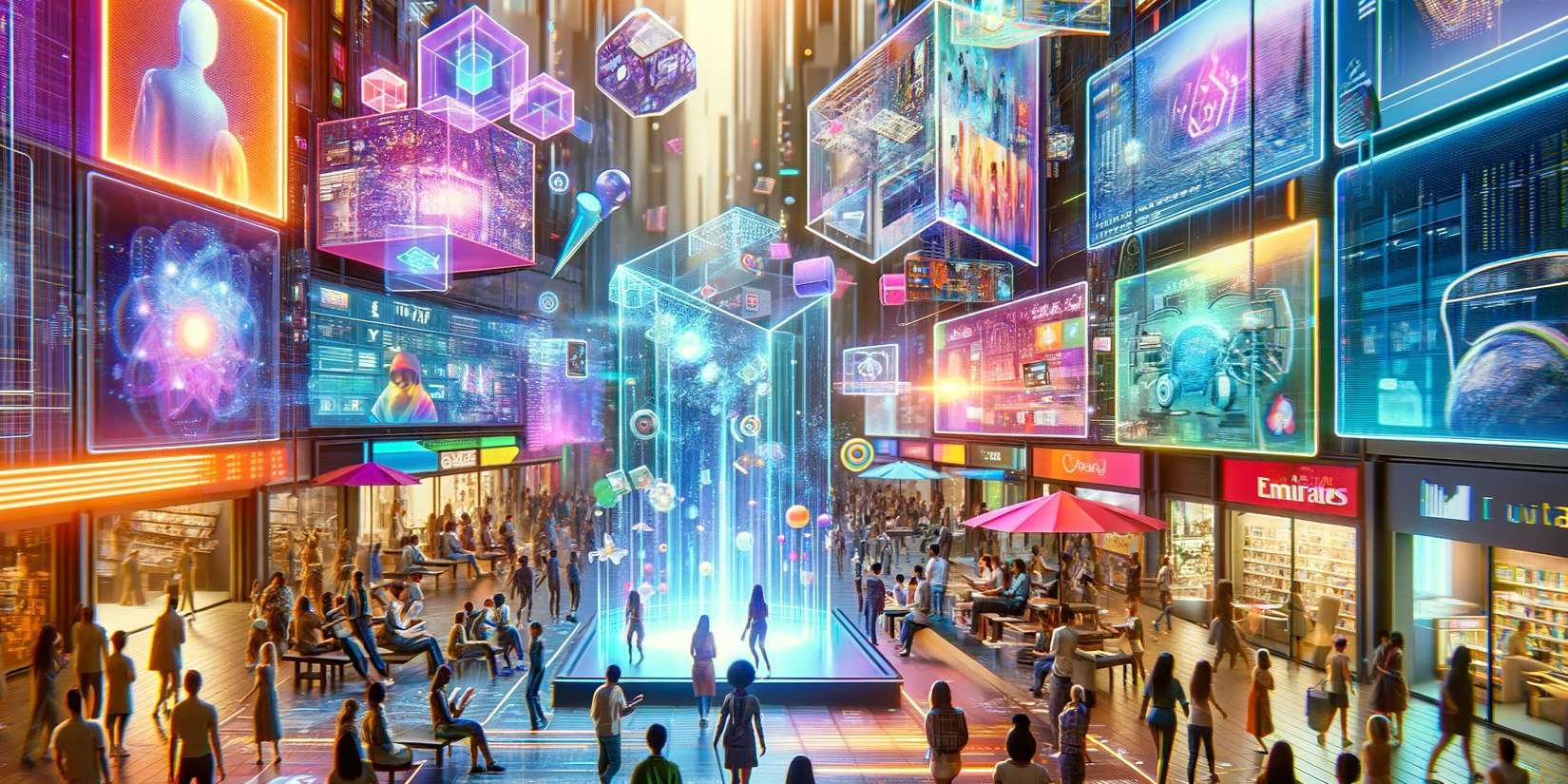The Metaverse, a fascinating fusion of virtual reality and digital space, opens up new horizons in the advertising world and a new advertising platform for consumer goods brands. Web-based metaverse apps in particular have established themselves as pioneering platforms for innovative forms of advertising. This development is particularly important for the target groups of generations Y and Z, as these groups have grown up as digital natives in a world in which technology and online interactions are omnipresent.
New target groups
Generations Y and Z, known for their affinity for digital innovations and experiences, find a space in the Metaverse that matches their search for new and unique experiences. Web-based Metaverse apps offer them an immersive experience that goes far beyond what traditional digital platforms can provide. This makes the Metaverse an ideal place to reach these audiences in a way that is both engaging and relevant.
Gamification
A key element that makes the metaverse so attractive for brands is the integration of gamification. By introducing playful elements such as reward systems, challenges and competitions, consumers are actively involved in the brand world. These gamification strategies help drive deeper and more lasting engagement by creating positive, entertaining experiences that go beyond traditional advertising messages.
Brand loyalty through social
Social exchange also plays a key role in the metaverse. Users can meet and interact in virtual worlds, which creates a strong sense of community. This sense of belonging is crucial for brand loyalty. In a world where peer recommendations and social interactions often have a greater impact than traditional advertising, the Metaverse provides an ideal platform to foster such communities.
Immersive product experiences
The immersive brand experiences offered by the Metaverse are also a key factor contributing to the appeal of this platform. In the Metaverse, products can be presented in three-dimensional, realistic models that allow users to build a deeper and more authentic connection to them. This type of product presentation far surpasses the traditional two-dimensional display and allows consumers to experience and test the products in various virtual environments.
Better data analysis
Another advantage of the Metaverse is the possibility of personalization and targeted data analysis. Brands can offer customized experiences by analyzing user data in the metaverse. These personalized experiences are based on the specific interests and preferences of individual users, which makes marketing much more effective and engaging. In addition, the metaverse allows for immediate user feedback, which enables brands to adapt their strategies and offers in real time.
Reach is key
The future viability and scalability of web-based metaverse apps are also crucial aspects. These platforms are not only adaptable and expandable, but also offer the opportunity to reach a global audience. Since they are accessible via the Internet, brands can reach and address people all over the world, which was previously unimaginable.
Summary
To summarize, web-based metaverse apps are fundamentally changing the landscape of digital marketing. They offer innovative, interactive and in-depth opportunities to engage with consumers, especially the tech-savvy Generations Y and Z. These platforms combine gamification, social sharing, immersive experiences and personalized experiences in a way that leaves traditional advertising methods far behind. This creates a dynamic and appealing environment in which brands can not only present their products, but also build lasting relationships with their customers.
The metaverse is therefore much more than just a new advertising platform; it is a paradigm shift in the way brands interact with their target groups. It offers a world full of possibilities in which the boundaries between reality and the virtual world are blurred and in which brands and consumers are connected in a completely new way. In this world, traditional concepts of advertising and customer loyalty are being redefined, which is invaluable for consumer brands targeting generations Y and Z.
